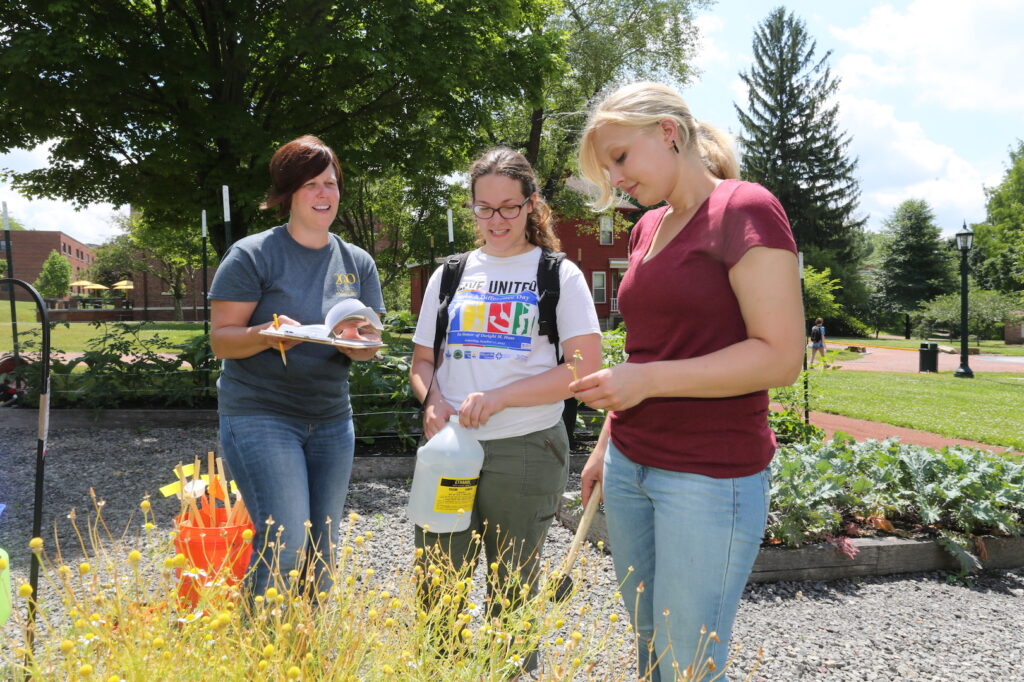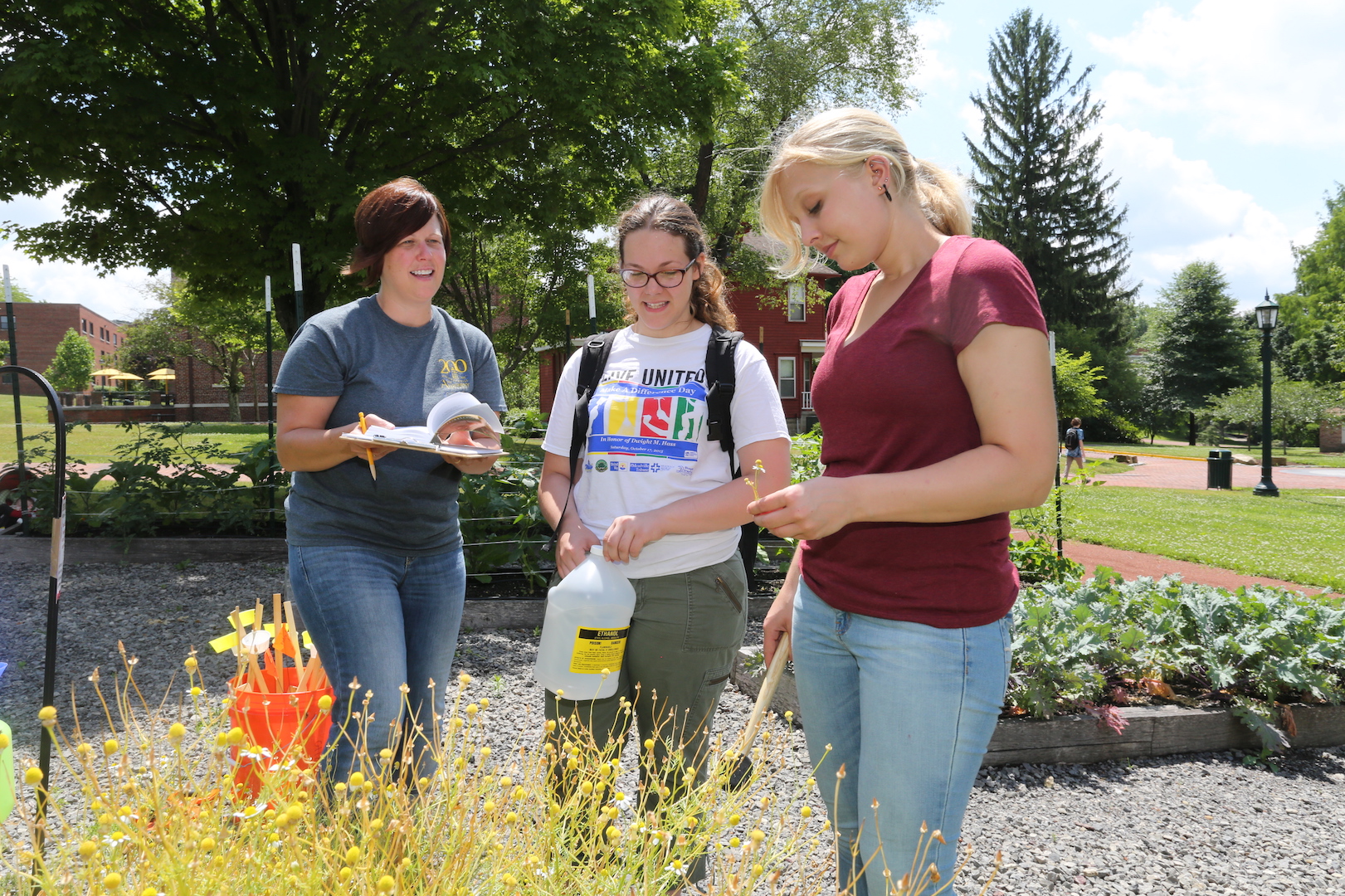
Allegheny College’s Summer Research program is returning in a big way in 2021 as 103 students will be participating in some form of summer research and the well-attended weekly Allegheny College Research Seminar Series (ACRoSS) meetings will return, albeit virtually at first.

On-campus research could involve topics such as “beesearch,” a summer project in 2016 headed by Professor Beth Choate. (Photo by Derek Li)
The student-faculty research this year is funded through the Provost’s Office, through external grants, or through the Gateway Network program. Of the students participating, 27 percent are from the humanities, 47 percent from the natural sciences, and 21 percent from the social sciences, said Aimee Knupsky, professor of psychology and director of Undergraduate Research, Scholarship, and Creative Activities (URSCA).
Most students will complete experiences that are approximately eight weeks in length and start later in June. There are 56 staff and faculty mentors participating, most of them working with an average of two students (with a range from one to five students).
“We are very excited to be able to host the summer research program at Allegheny College again this year,” said Knupsky. “Last year was the first year in decades that we did not have summer research, and it was missed by both students and faculty. The summer research experience is unique in that it gives students an extended period of time to focus on one project and helps them develop skills that are regularly reported as important to potential employees, such as ability to work effectively in teams, critical thinking skills, and the ability to analyze and interpret data.”
The ACRoSS meetings will start on Tuesday, June 29, with a welcoming session and then continue on Tuesdays through August 10. All ACRoSS sessions will be from noon until 1:15 pm. At each weekly meeting, students present short overviews of their specific summer research projects to an audience of students, faculty, and administrators. The College has held the ACRoSS meetings since the summer of 2008.
“I anticipate that we will be virtual and will hold these sessions via this Zoom link. We may transition to in-person meetings toward the end of the summer,” said Knupsky. The schedule for the ACRoSS sessions will be released during the week of June 21, said Knupsky.
As an example of the summer research taking place, a group of students will be working as research assistants with Rosita Scerbo, assistant professor of Spanish and women’s, gender and sexuality studies, and Guadalupe Gonzalez, assistant professor of psychology. The students are members of the new Intersectional Culture & Psychology Lab, an inclusive space designed for Black, Indigenous, and other People of Color (BIPOC) students to obtain visibility and research experience.
“Our research studies focus on marginalized groups and aim to identify solutions that address social-justice issues,” said Scerbo. “Our current study investigates the experiences of BIPOC students on college campuses. We’re particularly interested in examining access to mental health resources at Predominantly White Institutions. We’re currently in the process of recruiting participants for our study.”
After collecting data this summer, the goal is for the students to present their findings at a national conference, Scerbo said. “We are also examining the possibility of publishing the results as a peer-reviewed journal article once we conclude the study.”
Also, Reach ACRoSS sessions are being held this summer. These are workshops that started earlier in June and provide professional development training for summer research students.
The College is also offering an online research course for the first time through Scholarly for international high school students, primarily from India, said Knupsky. This is the first summer the College is offering the course and the instructors include Knupsky; Doros Petasis, professor of physics; and Michael Michaelides, assistant professor of economics.
“As a part of this course, students will learn about the research process and write an original research report on a topic related to the scholarship of the instructor. My section will focus on how emotion and empathy impact cognitive processes,” said Knupsky.


